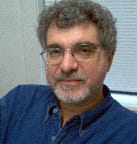I realize that it sounds funny to talk about wisdom — our ability to make good and virtuous decisions — like this. We don’t talk about intelligence as a skill; we generally think about intelligence as an innate quality, an endowment, not something to work at. People think you are either smart or not, but that you cannot lift mental weights to get smarter. Wisdom seems like intelligence in this way, probably because cultural icons of wisdom like Yoda and King Solomon are depicted as imbued with wisdom in a timeless way. But both Yoda and King Solomon gained their wisdom by improving one muscle: their ability to pay attention.
Before we get to how attention can improve wisdom, let’s understand how attention itself works. Attention is, in short, the focus of our thoughts. It can be external (a gunshot will grab your attention without any effort on your part) or internal (contemplating a problem at work). It has limits: You can pay attention to a task you have to do and you can try harder to focus on it when it gets tedious, but we all eventually hit a breaking point. It is a finite resource.
To develop the skills of attention, one must increase the capacity for holding things in mind while thinking, to improve noticing, and to increase our control of attention.Thankfully, there is strong evidence that attention and our use of attention can improve with practice. For example, some research has demonstrated that practice playing certain video games can increase your capacity for attention (Greene & Bavelier, 2003) and practice in meditation can as well (Tang & Posner, 2009). So there is good reason to think of attention as a skill of selecting information, shifting your mind among relevant information, holding information in mind while thinking, and avoiding distraction.
How does attention help make decisions wiser? Because wise decisions, inherently, require a sustained focus on the problem at hand, a chance to turn over the possibilities in our mind until we find the best outcome. Unfortunately, we make a lot of our decisions without a lot of thought. Even when we think we are thinking hard about a big decision — taking a new job, for example — we too often skim the mental surface of a problem, not stopping to be curious about what lies beneath.
Fast and unreflective decisions maylead to better decisions sometimes, but it will not develop the skill of wisdom. If you do not see the virtuous options because you have not thought about them in the past, you may miss them. If you cannot think about a problem from someone else’s perspective, you may not consider everything necessary for a wiser decision. When we are distracted, we miss bits of information we should use in helping us decide, and improving the skill of attention, reduces such distraction. Increased attention allows us to more aspects of a complex problem, leading to a wiser decision. Practicing the skills of attention over time — resisting distraction, holding goals in mind, and controlling what we attend to — can help all of us make wiser decisions.
Further reading:
Green, C. S. & Bavelier, D. (2003). Action video game modifies visual selective attention. Nature, 423, 534–537.
Tang YY & Posner MI. (2009). Attention Training and Attention State training. Trends in Cognitive Sciences, 13, 222–227.
